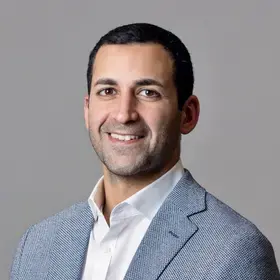Debbie Francis, completed her studies for the M.S. in Information and Knowledge Strategy (IKNS) program in December 2013. She chose IKNS to improve her skills and boost her knowledge about information strategy for her current role at OppenheimerFunds. As assistant vice president, she has managed a team of 13 quality assurance analysts. Since she completed the program, she now leads projects related to OppenheimerFunds's Enterprise Architecture, a newly elevated version of the role she held. We spoke with her about her experience in the IKNS program, and her increased responsibilities at OppenheimerFunds.
What were you doing before you enrolled in the IKNS program?
I've been working in the financial industry for more than a decade. At OppenheimerFunds, I'm in the technology group. I was already working there when I got into the IKNS program.
Originally, I was looking various M.B.A. programs at various schools, but when I ran into the description of the IKNS program, I realized that was exactly I needed – a way to understand the knowledge domains that one is in, assess one’s problems, and devise solutions to them. I had not seen it framed that way before.
I only applied to one program – Columbia's IKNS program – and I got in.
How have you used your knowledge and resources from the program in your work?
In one of the most critical technical projects we had at OppenheimerFunds, we did what's called a "lift-out." It's bigger than a website launch. We had a third party take on a very big and very important part of what we used to do, which is managing an accounting system that tells us what we're worth at the end of the day.
In order to hand that off to them, it required a huge amount of technical untangling. It had to be very precise, like surgery. You couldn't cut any arteries or else you'd bleed to death.
My team had to connect all the moving parts: external vendors, internal stakeholders, and the business people we were serving. We managed knowledge across all of these groups. I created a single place for everyone to view the project, a single metric to show how much progress we were making. We did that for many months and finally arrived at a successful conclusion.
Before that, we did fragmented work and hoped for integration once we went live. Instead, this time we did integration from the beginning all the way to the end with this project, and it was one of the biggest and the most risky projects we've done so far. I feel like I aged about 10 years!
In what ways has the IKNS program improved your career?
It has helped me to join a team that I would never have been able to join before, which is the Enterprise Architecture team. I'm producing the Enterprise Architecture principles for my company. It's a completely revamped position.
Are there any other things you wanted to mention with the IKNS program?
I think that the program helped me better deal with complexity. Organizations know when to demand technical skills but don't always emphasize the need for collaboration, precision, and strategy. Knowledge sharing and collaboration are the fuzzy part of working in complex organizations. Some of the cultural things that drive our behavior are often invisible, and nobody measures them or has a framework with which to understand them.
The IKNS program helped me to understand the importance of those fuzzy areas and how they affect our success or contribute to our failures. I think that's a new, cutting edge approach to working in organizations, and I have not seen that anyplace else.


